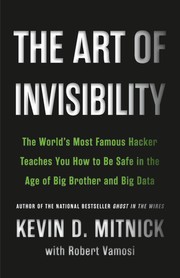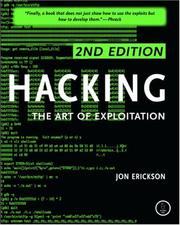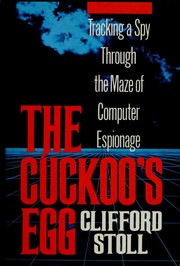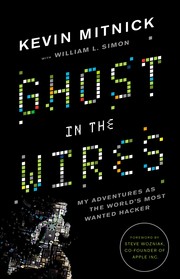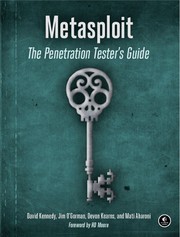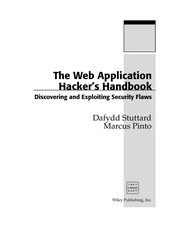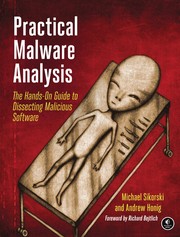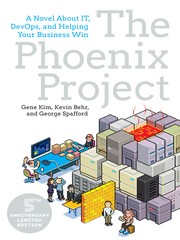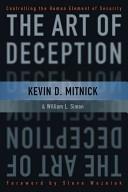Are you in search of the best books on cybersecurity to expand your knowledge in the ever-evolving world of digital security? Look no further! Whether you’re a beginner or an expert in the field, these 20 handpicked books about cybersecurity cover everything from the fundamentals of cyber threats to advanced techniques for protecting your digital assets. From practical guides to thrilling narratives, these books offer valuable insights into the world of cybersecurity. Get ready to dive into the fascinating world of digital security with these top-notch cybersecurity books!
Contents
- 1 20 Best Cybersecurity Books
- 2 The Art of Invisibility
- 3 Click Here to Kill Everybody
- 4 Hacking: The Art of Exploitation
- 5 The Cuckoo’s Egg
- 6 Ghost in the Wires
- 7 Sandworm
- 8 Metasploit: The Penetration Tester’s Guide
- 9 The Code Book
- 10 The Web Application Hacker’s Handbook
- 11 Social Engineering: The Art of Human Hacking
- 12 Practical Malware Analysis
- 13 The Phoenix Project
- 14 The Fifth Domain
- 15 The Cyber Effect
- 16 The Perfect Weapon
- 17 The Tangled Web
- 18 The Art of Deception
- 19 Countdown to Zero Day
- 20 Black Hat Python
- 21 The Shellcoder’s Handbook
- 22 Final Thoughts on Best Cybersecurity Books
- 23
20 Best Cybersecurity Books
The Art of Invisibility
by Kevin Mitnick
The Art of Invisibility by Kevin Mitnick is a fascinating book on cybersecurity that delves into the world of digital privacy and how to protect yourself from cyber threats. Mitnick, a former hacker turned security expert, provides readers with a comprehensive guide on how to maintain anonymity and security in an increasingly digital world. From protecting your online identity to securing your devices and communications, this book offers practical tips and techniques for staying invisible and safe from prying eyes. Mitnick’s engaging writing style and real-world examples make this cybersecurity book a compelling and accessible read for anyone concerned about their online security. Whether you’re a tech enthusiast or just an everyday internet user, The Art of Invisibility is an essential guide to staying safe and secure in the digital age.
Click Here to Kill Everybody
by Bruce Schneier
Click Here to Kill Everybody by Bruce Schneier is a thought-provoking book about cybersecurity that delves into the increasingly interconnected world of digital technology. Schneier, a renowned expert in the field, provides a comprehensive overview of the potential risks and vulnerabilities associated with our reliance on the internet of things, from smart devices to critical infrastructure.
The book explores the urgent need for improved security measures in an age where everything from cars to home appliances are connected to the internet, making them susceptible to hacking and exploitation. Schneier offers valuable insights into the complex web of security challenges facing individuals, businesses, and governments, and provides practical recommendations for safeguarding our digital lives.
Click Here to Kill Everybody is a must-read for anyone concerned about the future of digital security and the implications of living in a hyper-connected world. Schneier’s expertise and engaging writing style make this book a compelling and informative read for both cybersecurity professionals and general readers alike.
Hacking: The Art of Exploitation
by Jon Erickson
Hacking: The Art of Exploitation by Jon Erickson is a captivating and comprehensive book on cybersecurity. It delves deep into the world of hacking, providing readers with a thorough understanding of the techniques used by hackers to exploit computer systems and networks. The book covers a wide range of topics, including programming, networking, and cryptography, making it an essential resource for anyone interested in cybersecurity.
With its practical approach and hands-on examples, Hacking: The Art of Exploitation provides readers with the knowledge and skills needed to become proficient in the art of hacking. The author takes a unique and engaging approach to the subject, making complex concepts accessible and understandable to readers of all levels of expertise. Whether you are a beginner looking to learn the basics of hacking or an experienced professional seeking to expand your knowledge, this cybersecurity book is an invaluable resource that will take your understanding of cybersecurity to new heights.
The Cuckoo’s Egg
by Clifford Stoll
The Cuckoo’s Egg by Clifford Stoll is a captivating non-fiction book on cybersecurity that reads like a thrilling detective story. Set in the early days of the internet, Stoll, an astronomer turned computer expert, stumbles upon a hacker infiltrating the systems at Lawrence Berkeley National Laboratory. What starts as a routine investigation turns into a high-stakes cat-and-mouse game as Stoll delves into the world of espionage and cybercrime.
With meticulous attention to detail, Stoll takes readers on a fascinating journey through the nascent world of computer networks, uncovering the hacker’s trail across the globe. As he races against time to track down the elusive cybercriminal, the book provides a gripping portrayal of the early days of cybersecurity and the challenges of protecting sensitive information in the digital age.
Full of suspense and intrigue, The Cuckoo’s Egg is a must-read for anyone interested in the history of cybersecurity and the ongoing battle against cyber threats.
Ghost in the Wires
by Kevin Mitnick
Ghost in the Wires is a captivating cybercrime memoir penned by Kevin Mitnick, a notorious computer hacker turned security consultant. This compelling book delves into Mitnick’s life as one of the world’s most wanted cybercriminals, detailing his elaborate hacking escapades and the cat-and-mouse game with law enforcement that ensued. Mitnick’s mastery of social engineering, phone phreaking, and computer hacking allowed him to infiltrate the networks of major corporations and government agencies, making him a formidable adversary for authorities.
As a cybersecurity book, Ghost in the Wires offers readers a fascinating insight into the world of cybercrime and the vulnerabilities of digital systems. Mitnick’s engaging storytelling and insider knowledge provide a unique perspective on the dangers of the online world and the importance of robust security measures. Whether you’re a tech enthusiast or simply intrigued by the darker side of the internet, this book about cybersecurity is a must-read for anyone interested in the ever-evolving landscape of digital security.
Sandworm
by Andy Greenberg
Sandworm by Andy Greenberg is an electrifying and eye-opening book about the world of cyber warfare. The author takes readers on a thrilling journey into the shadowy world of hacking, espionage, and sabotage, as he delves into the activities of a notorious cyber warfare group known as Sandworm. Through meticulous research and compelling storytelling, Greenberg exposes the group’s destructive cyber attacks on critical infrastructure, government agencies, and businesses, and their brazen attempts to destabilize nations and sow chaos.
Greenberg’s vivid and riveting narrative sheds light on the dangerous and far-reaching implications of cyber warfare, offering a chilling glimpse into the future of conflict and espionage. With its detailed accounts of cyber attacks and the behind-the-scenes activities of hackers, Sandworm is a must-read for anyone interested in the intersection of technology, espionage, and national security. This cyber warfare book provides a thought-provoking and timely exploration of the evolving threats in the digital age.
Metasploit: The Penetration Tester’s Guide
by David Kennedy
Metasploit: The Penetration Tester’s Guide by David Kennedy is a comprehensive and practical book on cybersecurity. As a penetration testing expert, Kennedy provides a detailed overview of the Metasploit framework, a powerful tool used by cybersecurity professionals to test and secure computer systems.
The book covers a wide range of topics, including information gathering, vulnerability analysis, and exploitation techniques. Kennedy also delves into the importance of understanding how attackers think and operate in order to better defend against potential cyber threats.
Readers will find step-by-step guidance on using Metasploit to identify and exploit vulnerabilities, as well as tips for customizing and extending the framework to better suit their specific needs. With its hands-on approach and real-world examples, this cybersecurity book is an essential resource for anyone looking to enhance their penetration testing skills and better protect their organization’s digital assets.
The Code Book
by Simon Singh
The Code Book by Simon Singh is a fascinating exploration of the history and impact of cryptography throughout the ages. From the ancient civilizations to the modern digital age, Singh takes readers on a journey through the evolution of codes and code-breaking. This book is not just a history lesson, but also a captivating look at how cryptography has shaped the world we live in today.
Readers will be enthralled by the stories of famous code-breakers and their triumphs, as well as the secrets of unbreakable codes and the challenges they pose. The Code Book also delves into the role of cryptography in warfare, politics, and technology, making it a must-read for anyone interested in the world of secrets and security.
Whether you’re a history buff, a tech enthusiast, or simply curious about the hidden world of codes and ciphers, The Code Book is sure to captivate and educate. With its engaging storytelling and accessible explanations, this book about cybersecurity is a must-have for anyone interested in the art of secrecy and the power of encryption.
The Web Application Hacker’s Handbook
by Dafydd Stuttard
The Web Application Hacker’s Handbook by Dafydd Stuttard is a comprehensive and practical guide for anyone interested in learning about web application security. This book on cybersecurity provides a deep dive into the world of hacking and securing web applications, covering everything from the basics of how web applications work to advanced hacking techniques and defenses.
Readers will gain valuable insights into common vulnerabilities such as SQL injection, cross-site scripting, and more, with real-world examples and practical guidance on how to identify and exploit these vulnerabilities. The book also delves into the mindset and methodologies of hackers, giving readers a unique perspective on how to think like an attacker in order to better defend against attacks.
Whether you are a security professional, developer, or simply curious about the world of cyber threats, this book about cybersecurity is an invaluable resource for understanding the intricacies of web application security and learning how to protect against potential threats.
Social Engineering: The Art of Human Hacking
by Christopher Hadnagy
Social Engineering: The Art of Human Hacking, authored by Christopher Hadnagy, is a captivating and insightful book on cybersecurity. Hadnagy delves into the realm of human behavior and psychology, offering a comprehensive overview of social engineering tactics and techniques. The book provides a deep understanding of how hackers exploit human vulnerabilities to gain unauthorized access to systems and information.
Hadnagy’s writing style is engaging and easy to comprehend, making complex cybersecurity concepts accessible to a wide audience. The book is filled with real-world examples and case studies that illustrate the various social engineering methods used by hackers. Readers will gain valuable insights into the mindset of both attackers and potential targets, allowing them to develop a proactive approach to cybersecurity.
Social Engineering: The Art of Human Hacking is a must-read for anyone interested in understanding the human element of cybersecurity. Whether you are a cybersecurity professional, business leader, or simply curious about the intricacies of cyber threats, this book offers a compelling and educational exploration of the subject.
Practical Malware Analysis
by Michael Sikorski
Practical Malware Analysis by Michael Sikorski is a comprehensive and hands-on guide for anyone looking to enhance their knowledge of malware analysis. This book on cybersecurity provides a detailed and practical approach to dissecting and understanding malicious software, making it an essential resource for cybersecurity professionals, malware analysts, and anyone interested in the field of cybersecurity.
The book offers a step-by-step approach to malware analysis, covering essential topics such as dynamic and static analysis, code injection, and debugging techniques. It also delves into advanced topics like reverse engineering and memory forensics, providing a well-rounded understanding of malware analysis.
What sets Practical Malware Analysis apart is its hands-on approach, with numerous real-world examples and practical exercises to reinforce learning. Whether you’re a beginner or an experienced analyst, this cybersecurity book offers valuable insights and techniques that can be applied in real-world scenarios.
Overall, Practical Malware Analysis is an indispensable resource for anyone looking to deepen their understanding of malware and enhance their skills in cybersecurity.
The Phoenix Project
by Gene Kim, Kevin Behr, and George Spafford
The Phoenix Project is a captivating novel that offers a unique blend of business, technology, and leadership. Written by Gene Kim, Kevin Behr, and George Spafford, this book provides an engaging narrative that revolves around the challenges faced by an IT manager who is struggling to save a failing project. Through an intriguing story, the authors shed light on the crucial aspects of managing IT projects, handling operational issues, and driving organizational change.
This book is not just a typical business or technology read, but it’s a compelling story that keeps the readers engaged while imparting valuable insights into the complexities of IT operations and cybersecurity. The Phoenix Project is a must-read for anyone interested in understanding the dynamics of technology-driven businesses, as well as those looking to gain a deeper understanding of cybersecurity and IT management.
The Fifth Domain
by Richard A. Clarke and Robert K. Knake
The Fifth Domain by Richard A. Clarke and Robert K. Knake is a compelling book on cybersecurity that delves into the complexities of the digital battlefield. The authors, both experts in national security and cyber warfare, provide a comprehensive overview of the evolving threat landscape in the cybersecurity book. They explore the various ways in which nations, organizations, and individuals are vulnerable to cyber attacks, and offer insights into the strategies and technologies that can be employed to defend against these threats.
Clarke and Knake’s writing is engaging and accessible, making the intricate world of cyber warfare understandable for readers of all backgrounds. The book also addresses the ethical and legal implications of cybersecurity, providing a thought-provoking examination of the intersection between technology and warfare. Whether you’re a cybersecurity professional, a student of international relations, or simply curious about the digital realm, The Fifth Domain offers a thought-provoking and timely exploration of the book about cybersecurity.
The Cyber Effect
by Mary Aiken
The Cyber Effect by Mary Aiken is a thought-provoking book on cybersecurity that delves into the impact of the digital world on human behavior. Dr. Aiken, a leading expert in cyberpsychology, explores the psychological and social effects of our increasingly connected lives. She examines the risks and benefits of our online interactions, shedding light on the ways in which technology shapes our thoughts, emotions, and actions. With compelling research and real-life case studies, Aiken highlights the potential dangers of the digital age, from cyberbullying and online addiction to the manipulation of social media platforms. However, she also offers insights into how we can harness technology for positive change and use it to enhance our well-being. The Cyber Effect is a fascinating and eye-opening book about cybersecurity that provides a deeper understanding of the human impact of the digital revolution. A must-read for anyone concerned about the intersection of technology and psychology.
The Perfect Weapon
by David E. Sanger
The Perfect Weapon by David E. Sanger is a compelling book on cybersecurity that takes readers deep into the world of cyber warfare. Sanger, a national security correspondent for The New York Times, provides a comprehensive overview of the evolving landscape of global cyber threats and the impact of cyber attacks on governments, businesses, and individuals. Through gripping storytelling and in-depth research, Sanger explores the development of cyber weapons, the strategies of nation-states and criminal organizations, and the challenges of defending against cyber attacks.
With a keen eye for detail and a wealth of insider knowledge, Sanger delves into real-world examples of cyber incidents, including the Stuxnet virus, the North Korean Sony hack, and the Russian interference in the 2016 U.S. presidential election. The Perfect Weapon is a must-read for anyone interested in the intersection of technology, politics, and security, and it offers valuable insights into the complex and ever-changing world of cyber threats.
The Tangled Web
by Michal Zalewski
The Tangled Web by Michal Zalewski is a fascinating exploration of the intricate world of web security. In this gripping book on cybersecurity, Zalewski delves deep into the complexities of web applications, exposing the vulnerabilities and intricacies that lie beneath the surface. With a keen eye for detail and a wealth of technical knowledge, the author takes readers on a journey through the hidden dangers of the internet, shedding light on the myriad ways in which web applications can be exploited by malicious actors.
This book about cybersecurity is a must-read for anyone seeking to understand the inner workings of the web and the potential risks that come with it. Zalewski’s insightful analysis and engaging writing style make The Tangled Web a compelling and informative read for both security professionals and general enthusiasts alike. Whether you’re a seasoned cybersecurity expert or simply curious about the world of online security, this cybersecurity book offers a wealth of knowledge and a captivating exploration of the tangled web we weave online.
The Art of Deception
by Kevin Mitnick and William L. Simon
The Art of Deception, written by Kevin Mitnick and William L. Simon, is a captivating book on cybersecurity that delves into the world of social engineering and human manipulation. Mitnick, a notorious hacker turned security consultant, provides a unique perspective on the vulnerabilities of human psychology in the digital age.
The book takes readers on a thrilling journey through real-life examples and case studies of how hackers exploit human behavior to gain unauthorized access to sensitive information. Mitnick and Simon explore the tactics used by cybercriminals to deceive and manipulate individuals, highlighting the importance of vigilance and awareness in a world dominated by technology.
With its engaging storytelling and insightful analysis, The Art of Deception offers a thought-provoking exploration of the human side of cybersecurity. It is a must-read for anyone interested in understanding the intricate dynamics of cyber threats and the art of protecting against them.
Countdown to Zero Day
by Kim Zetter
Countdown to Zero Day by Kim Zetter is a riveting book about cybersecurity that delves into the gripping world of cyber warfare and espionage. Zetter takes readers on a thrilling journey through the discovery and aftermath of the Stuxnet computer virus, a malicious cyber weapon designed to sabotage Iran’s nuclear program.
Through meticulous research and compelling storytelling, Zetter unravels the complex web of international cyber conflicts and the high-stakes game of digital espionage. She provides a detailed account of how Stuxnet was developed, deployed, and the unprecedented impact it had on the world stage.
This cybersecurity book is a thought-provoking exploration of the evolving nature of warfare in the digital age and the potential consequences of state-sponsored cyber attacks. With its blend of technical insight and narrative flair, Countdown to Zero Day is a must-read for anyone interested in cybersecurity, technology, and the clandestine world of cyber warfare.
Black Hat Python
by Justin Seitz
Black Hat Python by Justin Seitz is a compelling book about cybersecurity that delves into the world of offensive hacking techniques using the Python programming language. With a focus on practical applications, the book provides a hands-on approach to understanding how to leverage Python for executing advanced cyber attacks. Seitz covers topics such as creating stealthy trojans, manipulating network traffic, and exploiting security vulnerabilities, all with the aim of giving readers a deeper understanding of offensive cyber operations. The book is an invaluable resource for cybersecurity professionals, penetration testers, and anyone interested in the offensive side of cybersecurity. By learning the techniques outlined in Black Hat Python, readers can gain insight into the mindset of malicious hackers and strengthen their defensive strategies against cyber threats. With its practical examples and real-world scenarios, Black Hat Python is an essential read for anyone looking to deepen their knowledge of offensive cybersecurity.
The Shellcoder’s Handbook
by Chris Anley, John Heasman, Felix Lindner, and Gerardo Richarte
The Shellcoder’s Handbook is a comprehensive and authoritative guide to the world of computer security and hacking. Written by Chris Anley, John Heasman, Felix Lindner, and Gerardo Richarte, this book provides a deep dive into the techniques and tools used by hackers to exploit vulnerabilities in computer systems. It covers a wide range of topics including programming, networking, and system architecture, making it an essential resource for anyone interested in the field of cybersecurity.
With a focus on practical, hands-on examples, The Shellcoder’s Handbook offers a wealth of knowledge for both novice and experienced security professionals. The authors provide detailed explanations of various types of exploits, such as buffer overflows and format string vulnerabilities, as well as practical guidance on how to defend against them. Whether you’re a security professional, a developer, or simply curious about the world of hacking, this book is a must-read for anyone interested in understanding the intricacies of computer security.
Final Thoughts on Best Cybersecurity Books
In conclusion, these 20 best books about Cybersecurity offer a wealth of knowledge and insights into the complex world of online security. Whether you’re a beginner or an expert in the field, these books provide valuable information and practical advice to help you navigate the ever-changing landscape of cybersecurity. With topics ranging from ethical hacking to data privacy, there’s something for everyone looking to enhance their understanding of cybersecurity. Happy reading and stay safe online!
Which book about Cybersecurity is best?
The best book on Cybersecurity can vary with personal preference, but three widely recommended titles are:
- The Art of Invisibility by Kevin Mitnick,
- Click Here to Kill Everybody by Bruce Schneier,
- Hacking: The Art of Exploitation by Jon Erickson.
Each offers valuable insights and could be a great starting point.
What are the best books to learn about Cybersecurity?
For those looking to learn about Cybersecurity, there is a wealth of literature that can provide a comprehensive understanding of the subject. Some of the most highly recommended books include:
- The Art of Invisibility by Kevin Mitnick,
- Click Here to Kill Everybody by Bruce Schneier,
- Hacking: The Art of Exploitation by Jon Erickson,
- The Cuckoo’s Egg by Clifford Stoll,
- Ghost in the Wires by Kevin Mitnick,
- Sandworm by Andy Greenberg,
- Metasploit: The Penetration Tester’s Guide by David Kennedy,
- The Code Book by Simon Singh,
- The Web Application Hacker’s Handbook by Dafydd Stuttard,
- Social Engineering: The Art of Human Hacking by Christopher Hadnagy
These books offer a range of perspectives on Cybersecurity, covering various aspects and approaches to the subject.
What are the best books about Cybersecurity?
The best books about Cybersecurity are:
- The Art of Invisibility by Kevin Mitnick,
- Click Here to Kill Everybody by Bruce Schneier,
- Practical Malware Analysis by Michael Sikorski,
- The Phoenix Project by Gene Kim, Kevin Behr, and George Spafford,
- The Code Book by Simon Singh,
- Sandworm by Andy Greenberg.
Each offers unique insights into the subject. While these books about Cybersecurity are highly regarded, it’s important to note that any list of ‘best’ books is subjective and reflects a range of opinions.
What are the best Cybersecurity books of all time?
Choosing the best Cybersecurity books of all time can vary depending on who you ask, but five titles that are often celebrated include
- The Art of Invisibility by Kevin Mitnick,
- Click Here to Kill Everybody by Bruce Schneier,
- Ghost in the Wires by Kevin Mitnick,
- The Code Book by Simon Singh,
- and Practical Malware Analysis by Michael Sikorski.
Each of these books has made a significant impact in the field of Cybersecurity and continues to be influential today.

